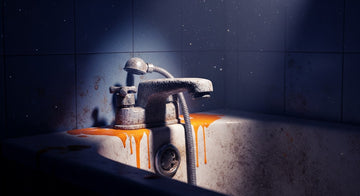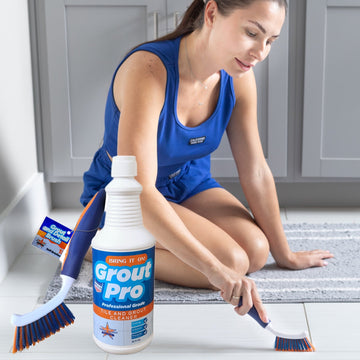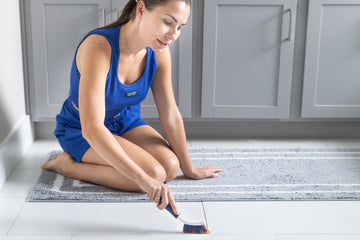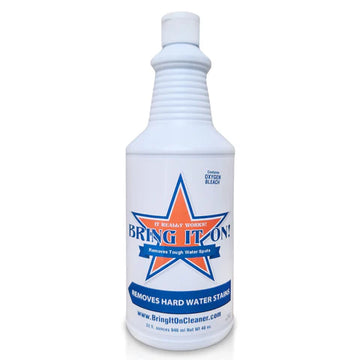If you live in an area with hard water, you know the struggle of dealing with stubborn stains and soap scum on shower surfaces. Hard water, which is high in minerals like calcium and magnesium, can leave behind a chalky residue that is tough to clean and can eventually damage bathroom fixtures. Choosing the right hard water shower cleaner is crucial not only for maintaining the aesthetic of your bathroom but also for extending the life of its fixtures. This blog will guide you through the key considerations when selecting an effective hard water shower cleaner for your bathroom.
1. Understanding the Chemistry of Your Water
Before selecting a shower cleaner, it’s important to understand the type of hard water deposits you’re dealing with. Water hardness varies by location and can affect which type of cleaner will be most effective. You might consider testing your water to determine its hardness level, which can help you choose a cleaner formulated to handle the specific minerals in your water.
2. Cleaner Formulation
There are several types of hard water cleaners, each designed to tackle different aspects of hard water stains:
Acidic Cleaners: These are effective at dissolving calcium and lime deposits. Ingredients like citric acid, vinegar, or other mild acids work well for lighter stains.
Abrasive Cleaners: These cleaners are good for more severe accumulations but should be used with caution to avoid scratching surfaces.
Non-Acidic, Chemical-Based Cleaners: These are designed to break down both soap scum and mineral deposits without the use of harsh acids, suitable for surfaces that may be sensitive to acidic solutions.
3. Surface Compatibility
It’s essential to choose a cleaner that is safe for the surfaces in your bathroom. Some cleaners are too abrasive for delicate surfaces like glass or certain metals. Always check the label to ensure that the product is suitable for use on your shower doors, tiles, and fixtures. If in doubt, test the cleaner on a small, inconspicuous area before applying it to larger surfaces.
4. Environmental and Health Considerations
Many consumers today are concerned about the environmental impact and health implications of cleaning products. If these factors are important to you, look for eco-friendly cleaners that use natural acids like vinegar or lemon juice. Additionally, check for products that are free from harmful chemicals such as phosphates, chlorine, and ammonia. These products are not only better for the environment but also healthier for your household.
5. User Reviews and Recommendations
Researching user reviews and recommendations can provide valuable insights into how different products perform in real-world conditions. Look for reviews that address long-term use and effectiveness on hard water stains similar to those you encounter in your home. Product forums, retailer websites, and social media platforms are great resources for gathering user experiences.
6. Ease of Use
Consider how easy the product is to use. Some cleaners require a simple spray and rinse, while others might need a lengthy soak time or scrubbing. Your choice might depend on how much time and effort you are willing to invest in your cleaning routine.
Conclusion
Choosing the right hard water shower cleaner involves understanding your specific needs, including the type of water in your home, the surfaces you need to clean, and your personal preferences regarding environmental and health impacts. By considering these factors, you can select a cleaner that not only effectively removes hard water stains but also preserves the integrity and appearance of your bathroom fixtures.
Call to Action
Take the time to evaluate your bathroom cleaning needs and explore the various hard water shower cleaner options available. A little research and understanding can lead to sparkling results and a cleaner, more inviting bathroom space. Don’t let hard water stains dampen the beauty of your bathroom—find the right cleaner and enjoy a pristine shower area!



